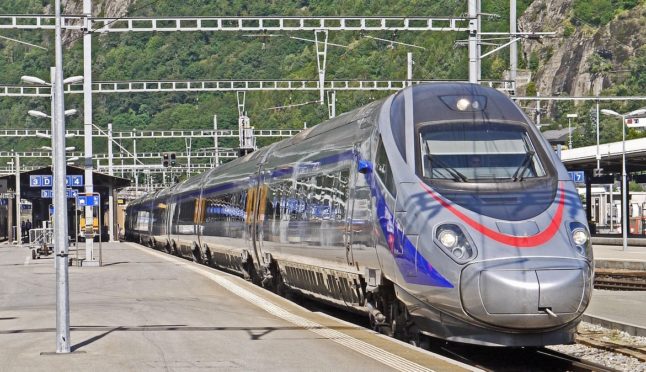Bern and Brussels are negotiating various bilateral treaties during the current round of bilateral talks.
One of the topics under discussion is the inter-connected rail network — which sounds like an overall positive development for seamless cross-border travel.
However, Vincent Ducrot, head of national rail company SBB fears that such a deal would be detrimental to Swiss commuters, because it would mean international trains would have priority over Switzerland’s system.
What is it about?
Currently, priority is given to national traffic on Swiss territory.
But a new deal with the EU would mean that European law — and international train traffic — would take precedence.
The problem is that all the train paths in Switzerland are currently occupied, Ducrot said in an interview with Swiss media on Wednesday.
He cited the example of the Geneva-Paris route, on which several European companies would like to bid. But that would mean that SBB would lose out by having to remove an existing train to accommodate a new foreign one.
And there is more: the question of punctuality
The SBB has long had a problem with trains from Germany, as half of them arrive in Switzerland late, disrupting the carefully coordinated Swiss railway timetable.
“Another huge concern we have is that the level of punctuality of the international system is totally different from ours,” Ducrot said. “Delays therefore risk being imported into Switzerland.”
To ease the chaos, the SBB has to keep special trains on standby to replace delayed ICE trains on the Basel-Zurich route, and passengers travelling from Germany to Zurich often have to transfer onto Swiss trains in Basel.
“Today, if a German train arrives late in Basel, we stop it and send a [Swiss] reserve train instead,” Ducret said.
“But if we can no longer do this in the future, it would mean that the train in question is accumulating delays, but above all that it is putting the SBB system behind schedule.”



 Please whitelist us to continue reading.
Please whitelist us to continue reading.
Member comments